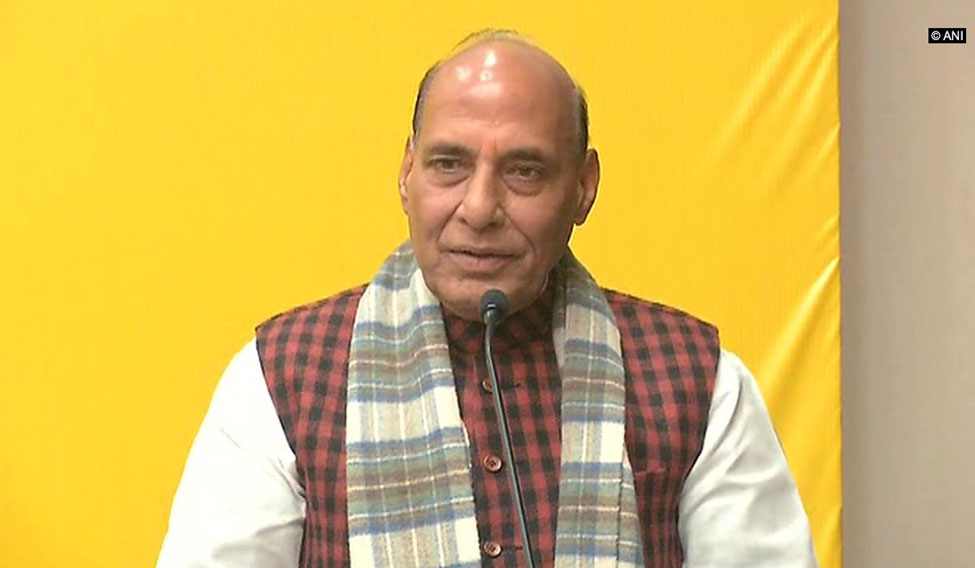Corruption was, without a doubt, the broad theme of Prime Minister Narendra Modi's campaign ahead of the Lok Sabha elections 2014. The most applauded electoral promise he made pertained to his hunt for black money stashed away in tax havens, and how he would bring it back and deposit Rs 15 lakhs in every voter's bank account.
Prime Minister Modi's first cabinet decision was the setting up of a Special Investigation Team (SIT) under retired judge M.B. Shah, in deference to a Supreme Court order.
Millions of bank accounts have been opened under the government's financial inclusion programme Jan Dhan, but the promised Rs 15 lakhs have not found their way into anyone's account so far. The value of black money has also not been quantified, with estimates varying, both, from time to time, and agency to agency.
While the government initially said it was getting into agreements with foreign countries to get help in the exercise of chasing and bringing home black money, government now claims that it took steps that were aimed at reducing corruption, and hitting black money.
During the launch of the book, “On The Trail of The Black Money – Tracking Corruption”, edited by Bibek Debroy and Kishore Arun Desai in the national capital on Saturday, Home Minister Rajnath Singh said that the setting up of SIT was aimed at signalling the government's determination to tackle the menace of black money. Singh counted demonetisation, the benami transactions law, the Direct Benefits Transfer, e-tendering and e-procurement, and the SIT as other steps intended to deal with the issue of corruption. He pointed out that even the government's move of enforcing prescription of generic medicines and fixing a cap on their prices, were also steps aimed at hitting the underbelly of corruption in the health sector. “Tax evasion has reduced, and the government's policy and efforts to root out corruption will continue. But everyone's coorperation is required for this because it is also about (people's) 'tendency' that makes for corruption,” he said, urging the NITI Aayog to find ways to bring in this change in people.
Singh did not define corruption. But some panellists discussing the book confessed that was a bit difficult.
Bibek Debroy, who apart from being the editor of the book, is also a member of NITI Aayog and heads the Prime Minister's Economic Advisory Committee, pointed out that there were petty corruptions associated with monopoly and shortages. Lack of transparency led to corruption that could be tackled by removing discretion. At higher levels, there was always subjectivity in decision making that could lead to corruption.
Yet, Debroy did not see the Prevention of Corruption Act as a solution, for it does not punish malafide intentions correctly, and does not protect bonafide intentions. “It is simplistic to presume that everything can be made transparent. That cannot be, and there will be subjectivity,” he said
Retired bureaucrat Shakti Sinha generally emphasised the need to distinguish between genuine mistakes and decisions that look wrong in retrospect, and said laws are not the only thing, given processes were far more important. “Things like demonetisation, GST, JAM, insolvency codes are meant to nudge the people to do the right thing,” said Sinha.
Dr. Ashwini Mahajan of the Swadeshi Jagran Manch felt the government should use technology to monitor the generation and export of black money. Saying it is time the government try to study why cryptocurrency had boomed post demonetisation, Mahajan emphasised the conflict of interest being ignored by regulators, as was the idea of over-invoicing and under-invoicing.
NITI Aayog CEO, Amitabh Kant did not get into the debate, but came up with solutions. He observed that the growing mountain of rules and policies year after year had made it difficult for people who genuinely want to create wealth, by causing adverse impact on ease of doing business. The government has now reduced the number of forms from 14 to 3, and it only takes a day to incorporate a new compancy and five minutes to register a new MSME. “If everything goes digital and all sectors and departments are integrated digitally at all levels, corruption will reduce,” he said, suggesting a simple thumb rule – no form should be more than one page, no rules should be more than two pages and no law should be more than three pages. Apart from simplification, Kant pleaded for institutional restructuring in order to reduce corruption, and cited the example of how the MCI had been restructured into the NMC. He said similar exercise was required for the UGC and AICTE.
The NITI Aayog CEO urged the government to consider all its expenditure through DBT. “The answer to corruption is not Lokpal or new institutions. It is in making India easy, simply and using technology including Artificial Intelligence and Blockchain,” he opined.
TRANSPARENCY
Govt trying to root out corruption, but people should change: Rajnath Singh
 Home Minister Rajnath Singh speaks during the launch of the book, "On The Trail of The Black Money – Tracking Corruption" in New Delhi | ANI
Home Minister Rajnath Singh speaks during the launch of the book, "On The Trail of The Black Money – Tracking Corruption" in New Delhi | ANI
This browser settings will not support to add bookmarks programmatically. Please press Ctrl+D or change settings to bookmark this page.





